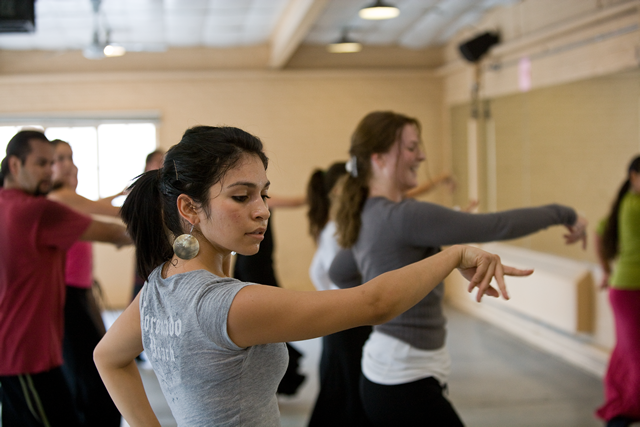
Theatre & Dance ETDs
Publication Date
7-12-2014
Abstract
The nationalist regime of General Francisco Franco (1936-1975) dramatically and forcefully reshaped every element of Spanish culture including dance and flamenco. Many flamencologists derisively refer to the resulting product of this system as nacionalflamenquismo or national-flamencoism. The bureaucratic mechanics that created nacionalflamenquismo evolved throughout the first three decades of the regime to fit with changing economic and political realities. As Spain re-entered the global community following its Civil War (1936-1939), flamenco and Spanish dance proved useful tools for international public relations as well as domestic propaganda. By discerning the various factors that linked the art of flamenco to the political and economic fate of its country of origin, a more complete understanding of how art and politics affect each other develops and the symbolic power of dance in this equation becomes apparent. This thesis utilizes archival resources from the Ministry of Education and Ministry of Information and Tourism archives in the Archivo General de la Administración in Alcalá de Henares, Spain.
Degree Name
Theatre & Dance
Level of Degree
Masters
Department Name
Theatre & Dance
First Committee Member (Chair)
Santos Newhall, Mary Anne
Second Committee Member
Encinias-Sandoval, Eva
Third Committee Member
Encinias, Marisol
Fourth Committee Member
Williams, Gretchen
Sponsors
Department of Theatre and Dance, Graduate and Professional Student Association, Office of Graduate Studies
Language
English
Keywords
Flamenco, Fascism, Dance, Censorship, Tourism
Document Type
Thesis
Recommended Citation
Goldbach, Theresa. "Fascism, Flamenco, and Ballet Español: Nacionalflamenquismo." (2014). https://digitalrepository.unm.edu/thea_etds/9
